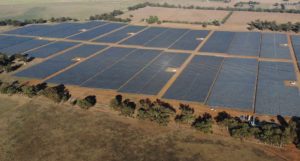Another new study has again highlighted the damage to health from the world’s continued dependence on fossil fuels and its impact on the global climate.
The seventh annual global report of the Countdown on Health and Climate Change, published in The Lancet, highlights a number of crises, ranging from food insecurity, infectious diseases, heat-related disease, energy poverty, and deaths from exposure to air pollution.
“Our report this year reveals we are at a critical juncture,” said Dr Marina Romanello, executive director of the Lancet Countdown at the University College London.
“We see how climate change is driving severe health impacts all around the world, while the persistent global fossil fuel dependence compounds these health harms amidst multiple global crises, keeping households vulnerable to volatile fossil fuel markets, exposed to energy poverty, and dangerous levels of air pollution.”
The latest Countdown report represents the work of 99 experts from 51 institutions, including the World Health Organization (WHO) and the World Meteorological Organization (WMO), and is led by University College London.
It has been published ahead of the 27th UN Conference of the Parties (COP27), and presents 43 indicators that monitor the impact of extreme temperature on food insecurity, household air pollution, and the impacts of the fossil fuel industry.
“Despite the challenges, there is clear evidence that immediate action could still save the lives of millions, with a rapid shift to clean energy and energy efficiency,” said Dr Romanello.
“Accelerated climate action would deliver cascading benefits, with more resilient health, food, and energy systems. With the world in turmoil, governments and companies have the opportunity to put health at the centre of an aligned response to these concurrent crises, and deliver healthy, safe future for all.”
The report highlights the fact that over-dependence on fossil fuels worsens climate change. In turn, worsening climate change leads to dangerous health impacts felt around the globe. Extreme weather events like heatwaves, heavy precipitation, bushfires, storms, and droughts, continue to cost hundreds of thousands of lives each year.
“Healthcare systems are the first line of defence for treating the physical and mental health impacts of extreme weather events and the other impacts of a changing climate,” said Professor Kristie Ebi, Professor in the Center for Health and the Global Environment at the University of Washington.
“But health systems are struggling to cope with the burden of the COVID-19 pandemic, supply chain disruptions, and other challenges, putting lives in jeopardy, today and in the future.”
The report shows that climate change is affecting every pillar of food security. Rising temperatures and extreme weather events continue to threaten crop yields and directly shortening the growing season.
Extreme heat has increased the number of people reporting moderate to severe food insecurity and led to 470 billion potential labour hours lost globally in 2021.
Children under one-year-old collectively experienced 600 million more days of heatwaves (4.4 more days per child), while adults aged over 65 years experienced 3.1 billion more days (3.2 more days per person), in 2012–2021, compared to 1986–2005.
Conversely, the report claims that 69 out of 86 governments analysed are effectively subsidising fossil fuels for a net total of $400 billion in 2019. These subsidies exceeded 10% of national health spending in 31 of the countries analysed and exceeded 100% in five countries.
“Our global commitment to cut fossil fuels is way off-track, and now fossil fuel-focussed responses to the energy crises we face could reverse the progress made so far,” said Professor Anthony Costello, co-chair of the Lancet Countdown.
“We must change, otherwise our children face a future of accelerated climate change, threatening their very survival.
“A health-centred response to the current crises would still provide the opportunity to deliver a low-carbon, resilient, healthy future, where people all over the world can not only survive but thrive. There is still time to realise this future if we act now.”










